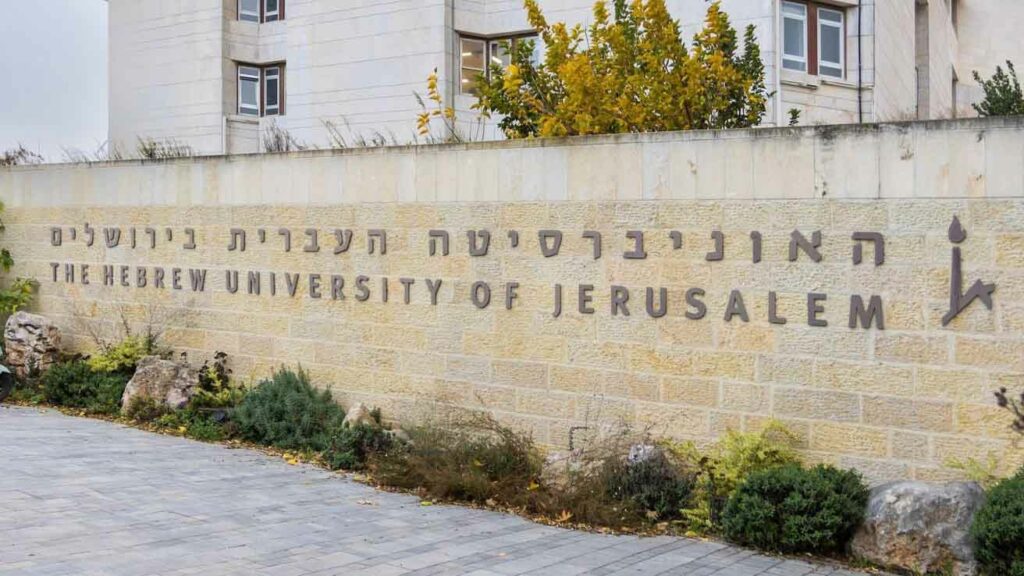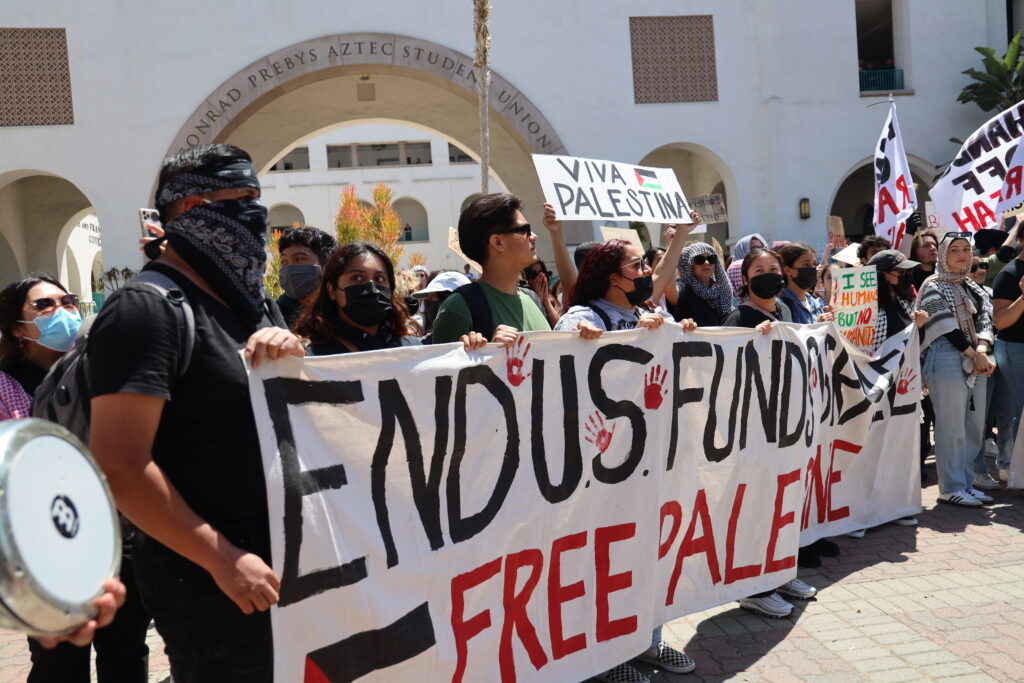
The entrance to The Hebrew University of Jerusalem.
Credit: Wikimedia Commons
Following government warnings about the dangers of being in a war zone, California universities and colleges have safely evacuated their students who were attending study abroad programs in Israel. The future of those programs for the rest of the school year remains uncertain.
The U.S. State Department recently has categorized Israel as a Level 3 travel risk, which urges U.S. citizens to “reconsider” their travel and presence in the country “due to terrorism and civil unrest” in the aftermath of the Hamas attack on Israel and Israel’s current retaliations in Gaza. The Level 3 ranking and family concerns were enough for the University of California and the California State University systems to take action. Level 4, the worst potential ranking, is an outright travel ban.
UC’s Education Abroad Program (UCEAP) reported that its students at the Hebrew University in Jerusalem have left Israel and are all safe. However, UC declined to say how many students were involved and where they are now. Mandatory travel insurance covered the evacuation expenses.
“We can confirm that students on UCEAP-sponsored programs are safe and have departed Israel. It’s our policy, following best practices on travel safety abroad, not to disclose the number of students in a given location or their specific location during emergency or urgent location changes,” Jennifer Monroe, UCEAP’s Director of Marketing, Communications, and Engagement, said in an email to EdSource.
The students are now taking online or hybrid courses in connection with Hebrew University, she said. And UCEAP “continues to evaluate the safety and security conditions at the program location and region to determine if in-person programming can continue,” Monroe added.
The California State University reported that a Chico State student in an internship in Israel has returned to California. Another student, from the CSU Northridge campus, was about to leave home to start a program at the University of Haifa but did not depart because of the situation there.
“We will be suspending our program and not sending anyone there, said Jaishankar Raman, director of CSU’s International Programs. “We are waiting until we see how the situation unfolds for the spring and we will await what the State Department advises us.” The Northridge student was offered a spot in other overseas programs but declined. He “decided not going anywhere now would be better and to assess the situation in the spring,” Raman said.
Three years ago, universities in California and across the U.S. canceled overseas studies programs as the pandemic took its toll worldwide. It took more than a year for some programs to reopen and then some other nations with higher Covid rates remained off limits for a while longer.
Many U.S. institutions are suspending programs to Israel for the time being and pausing plans for future programs, according to a statement from Caroline Donovan-White, an official with NAFSA: Association of International Educators, a Washington, D.C.-based organization that encourages and supports study abroad and exchange programs. Institutions rely on their existing risk management resources and tools like the State Department travel advisories to guide them in times like this, she explained. (NAFSA was founded as and used to be known as the National Association of Foreign Student Advisers.).
“The pausing of programs happens from time to time for many reasons and universities have plans and policies in place for those situations. Our members tell us they are in close contact with their students studying all over the world–not just in the Middle East–as they may feel especially vulnerable and isolated from their support network right now, particularly those of Jewish and Muslim faiths,” Donovan-White said.
The University of Southern California offers studies at the Hebrew University of Jerusalem and at The Interdisciplinary Center (IDC), Herzliya in the Tel Aviv area (also known as Reichman University). But USC said that since no student had signed up this fall, no special action was needed.
“USC does not have any students studying in Israel during this fall semester. The university will not be offering study abroad programs in Israel this upcoming spring semester and is closely monitoring the situation in the area,” Anthony Bailey, Vice President for Global and Online Initiatives & Dean, USC Bovard College, said in a statement to EdSource.
Stanford University said it has no programs in Israel.


